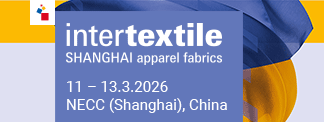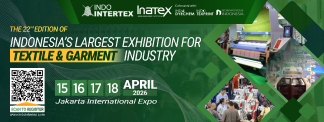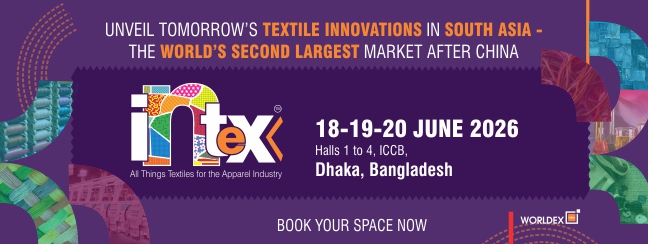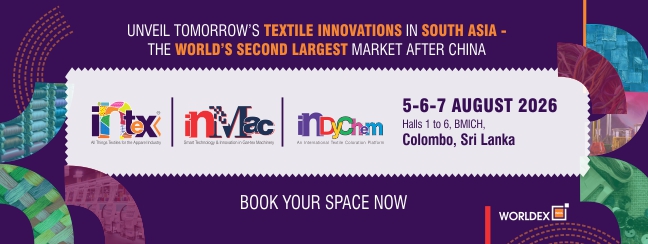SHEIN, a global e-retailer of fashion, beauty, and lifestyle products, has announced that it will invest US$70mil over the next 5-years to empower its ecosystem of third-party manufacturing suppliers, and the workers within.
The new US$55mil investment builds upon SHEIN’s previous US$15mil investment in the Supplier Community Empowerment Program (SCEP) that was announced in 2022. Through the investments, the company aims to bolster efforts to continuously transform traditional production models with technology advancements, provide upskilling initiatives for workers, facilities enhancements, as well as services for the communities within the supplier ecosystem.
Transforming Traditional Supply Chain Models
SHEIN was purpose-built on a foundation of innovative practices – on-demand production that meets actual market needs, reduces production waste, and enables low inventory with the goal of bringing the supply chain industry into the modern era.
SHEIN’s mission to make the beauty of fashion accessible to all is dependent on an empowered supply chain. As a leader in the industry, SHEIN aims to share its key learnings, best practices, innovative business models, and agile production methodology with the industry.
To support this goal, SHEIN has built its first Centre of Innovation for Garment Manufacturing (CIGM) to empower its global manufacturing supplier community and create a more sustainable production ecosystem using lean production methodology, and agile processes and applications, based on SHEIN’s industry-leading on-demand production business model. The CIGM is SHEIN’s commitment in action to elevating the garment manufacturing industry through research and development, establishing best practices in lean and agile production and imparting key learnings to SHEIN’s manufacturing suppliers to drive organizational and process transformation, for the transformation of SHEIN’s garment manufacturing hubs around the world.
Spread over 58,450 square meters (roughly 629,000 square feet), the CGIM will be funded by an estimated US$40 million over five years in research and development for innovative lean production solutions for garment manufacturing, including advanced lean production management systems and applications, such as the use of Automated Guided Vehicles (AGV) to promote automation and efficiency throughout the production process.
Training & Upskilling
SHEIN is committed to advancing the capabilities of new generations of technicians, providing them with the latest information and skills. The CIGM will act as a hub for knowledge transfer and training in SHEIN’s proprietary concepts and new models to support transformation throughout the industry’s layers and
milestones, eventually expanding to offer theoretical and practical applications to SHEIN’s garment manufacturing hubs around the world.
In 2022, SHEIN conducted over 380 training sessions for workers in the supply chain, covering topics including enterprise management, organizational structure, and business processes, such as quality inspections and quality assurance certification offered by third parties such as Intertek and SGS. This year, SHEIN will conduct more than 480 training sessions for workers in the supply chain, incorporating workshop courses that focus on lean production models.
“Over the last ten years, SHEIN has been at the forefront of transforming the fashion industry by promoting our innovative on-demand production model that reduces redundant production and creates more value for our consumers, the industry, and society as a whole,” said Tony Ren, SHEIN’s General Manager of Supply Chain. “SHEIN will continue to strive for the empowerment of the fashion industry using cutting-edge innovation exploration, research and training.”
Facilities Enhancements
In addition to empowering SHEIN’s manufacturing suppliers to meet their innovation goals with technology and training, SHEIN committed US$15mil to the SCEP in December 2022 to help upgrade hundreds of suppliers’ factories in its supply chain. To date, 31 factories have undergone facility enhancements, upgrades and expansion, now covering 97,000 square meters (over 1 million square feet). SHEIN will continue these efforts and aims to complete upgrading and expansion work for an additional 100 factories in 2023 and up to 300 factories within four years.
Providing Services for the Community
SHEIN will also invest US$10 million to provide services for the communities within the supply chain ecosystem, including accommodation and lifestyle facilities for workers. These accommodation options will also include multipurpose sports, recreation and leisure spaces, and canteens, and will be free for workers of factories that exclusively manufacture SHEIN products. Over the next three years, these new and improved housing options will be made available to over 40,000 workers and is estimated to exceed 270,000 square meters (roughly 2.9 million square feet).
SHEIN has also earmarked more than US$5 million over the next five years to build and staff 60 childcare centers, serving children aged 5 to 16 years of SHEIN supplier workers. The company aims to roll out 10 childcare centers within 2023 and will continue funding an estimated US$216,000 annually to run all the centers. Childcare center services will be offered at no charge to workers at SHEIN’s supplier factories.
These new initiatives support and empower the supply chain in their actions under SHEIN’s Responsible Sourcing (SRS) program, which is designed to ensure that employees working for its suppliers are treated fairly and with respect in safe and comfortable working environments. As part of the SRS program, all contracted manufacturing suppliers agree to comply with the SHEIN Code of Conduct, which is aligned to International Labor Organization core conventions and local laws and regulations and covers health and safety standards, environmental and energy standards, and human rights. SHEIN implements systematic supply chain management, partnering with independent third parties, such as Intertek, TUVR, and SGS, to conduct unannounced audits at these facilities.
Adam Whinston, Global Head of Environmental and Social Governance (ESG) at SHEIN, said: “The supplier community is the foundation for the sustainable development of the fashion ecosystem, and SHEIN will continue its efforts to empower this group, deepening the industry’s innovation capabilities, and promoting on-demand and lean production models for a more sustainable industry.”












